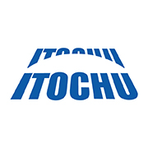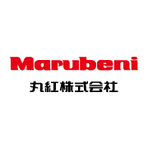Japanese Trading Houses: A Beacon Amidst Uncertainty
May 7, 2025, 4:36 am

Location: United States, Nebraska, Omaha
Employees: 10001+
Founded date: 1839
Total raised: $1.9B
In the bustling heart of Tokyo, a financial renaissance is unfolding. Japanese trading houses are emerging as titans, weathering storms and luring investors with promises of healthy returns. Amidst the backdrop of U.S. tariff uncertainties, these companies are not just surviving; they are thriving.
Itochu, a name synonymous with success, recently reported a record annual net profit of 880.3 billion yen, or about $6 billion. This figure is not just a number; it’s a testament to resilience. Profit rose by 10% from the previous year, a solid achievement, even if it fell slightly short of expectations. The market had anticipated a profit of 887 billion yen. Yet, in the world of finance, even slight missteps can be magnified.
Itochu’s success story is woven from diverse threads. Its textile, food, and FamilyMart convenience store units have played pivotal roles. Each sector contributes to a robust tapestry of profitability. The textile division, often overlooked, has proven to be a strong pillar. FamilyMart, with its ubiquitous presence, has become a staple in daily life. Together, they create a formidable force.
But Itochu is not alone. Other trading houses like Mitsubishi, Sumitomo, and Marubeni are also stepping into the spotlight. They are promising healthy shareholder returns, a siren call to investors. These companies are aware of the stakes. They know that keeping investors happy is crucial, especially when the winds of uncertainty blow from the U.S.
Warren Buffett, the Oracle of Omaha, has taken notice. His Berkshire Hathaway holds significant stakes in these trading houses. Buffett’s strategy is clear: invest in solid companies with strong fundamentals. He has been increasing his investments in Itochu and its peers. This move signals confidence. When Buffett speaks, the market listens.
The trading houses are navigating a complex landscape. U.S. tariffs loom large, casting shadows over global trade. Yet, these companies are adapting. They are diversifying their portfolios, exploring new markets, and reinforcing their core businesses. This agility is their lifeline.
Investors are drawn to the promise of returns. The total shareholder payout ratio for Itochu stands at 50%. This is not just a number; it’s a commitment. It reflects a strategy to reward investors while maintaining growth. The balance is delicate, but Itochu seems to have found its footing.
The textile industry, often seen as a relic, is experiencing a renaissance. Itochu’s textile division is a prime example. It has embraced innovation, focusing on sustainable practices and high-quality products. This shift not only appeals to consumers but also enhances profitability. In a world increasingly concerned with sustainability, this pivot is timely.
FamilyMart, too, is a beacon of success. Convenience stores are more than just retail outlets; they are community hubs. FamilyMart has adapted to changing consumer behaviors, offering a range of products that cater to modern lifestyles. This adaptability has fueled its growth, making it a vital part of Itochu’s success.
As the trading houses forge ahead, they face challenges. Global economic conditions are unpredictable. Tariffs and trade policies can shift like sand. Yet, the resilience of these companies is noteworthy. They are not just reacting; they are anticipating. They are positioning themselves for long-term success.
The allure of Japanese trading houses extends beyond their financial performance. They represent stability in a volatile world. Investors are seeking safe havens, and these companies fit the bill. Their diversified portfolios and strong market positions provide a buffer against uncertainty.
Moreover, the cultural ethos of Japan plays a role. There is a commitment to quality, a focus on relationships, and a long-term vision. These values resonate with investors. They are not just buying into a company; they are investing in a philosophy.
In conclusion, Japanese trading houses are navigating a complex landscape with skill and determination. Itochu’s record profits are a testament to this resilience. As they promise healthy returns amidst U.S. tariff uncertainties, they are not just weathering the storm; they are thriving in it. With Warren Buffett’s backing and a commitment to innovation, these companies are poised for a bright future. They are more than just trading houses; they are symbols of strength in an unpredictable world.
Itochu, a name synonymous with success, recently reported a record annual net profit of 880.3 billion yen, or about $6 billion. This figure is not just a number; it’s a testament to resilience. Profit rose by 10% from the previous year, a solid achievement, even if it fell slightly short of expectations. The market had anticipated a profit of 887 billion yen. Yet, in the world of finance, even slight missteps can be magnified.
Itochu’s success story is woven from diverse threads. Its textile, food, and FamilyMart convenience store units have played pivotal roles. Each sector contributes to a robust tapestry of profitability. The textile division, often overlooked, has proven to be a strong pillar. FamilyMart, with its ubiquitous presence, has become a staple in daily life. Together, they create a formidable force.
But Itochu is not alone. Other trading houses like Mitsubishi, Sumitomo, and Marubeni are also stepping into the spotlight. They are promising healthy shareholder returns, a siren call to investors. These companies are aware of the stakes. They know that keeping investors happy is crucial, especially when the winds of uncertainty blow from the U.S.
Warren Buffett, the Oracle of Omaha, has taken notice. His Berkshire Hathaway holds significant stakes in these trading houses. Buffett’s strategy is clear: invest in solid companies with strong fundamentals. He has been increasing his investments in Itochu and its peers. This move signals confidence. When Buffett speaks, the market listens.
The trading houses are navigating a complex landscape. U.S. tariffs loom large, casting shadows over global trade. Yet, these companies are adapting. They are diversifying their portfolios, exploring new markets, and reinforcing their core businesses. This agility is their lifeline.
Investors are drawn to the promise of returns. The total shareholder payout ratio for Itochu stands at 50%. This is not just a number; it’s a commitment. It reflects a strategy to reward investors while maintaining growth. The balance is delicate, but Itochu seems to have found its footing.
The textile industry, often seen as a relic, is experiencing a renaissance. Itochu’s textile division is a prime example. It has embraced innovation, focusing on sustainable practices and high-quality products. This shift not only appeals to consumers but also enhances profitability. In a world increasingly concerned with sustainability, this pivot is timely.
FamilyMart, too, is a beacon of success. Convenience stores are more than just retail outlets; they are community hubs. FamilyMart has adapted to changing consumer behaviors, offering a range of products that cater to modern lifestyles. This adaptability has fueled its growth, making it a vital part of Itochu’s success.
As the trading houses forge ahead, they face challenges. Global economic conditions are unpredictable. Tariffs and trade policies can shift like sand. Yet, the resilience of these companies is noteworthy. They are not just reacting; they are anticipating. They are positioning themselves for long-term success.
The allure of Japanese trading houses extends beyond their financial performance. They represent stability in a volatile world. Investors are seeking safe havens, and these companies fit the bill. Their diversified portfolios and strong market positions provide a buffer against uncertainty.
Moreover, the cultural ethos of Japan plays a role. There is a commitment to quality, a focus on relationships, and a long-term vision. These values resonate with investors. They are not just buying into a company; they are investing in a philosophy.
In conclusion, Japanese trading houses are navigating a complex landscape with skill and determination. Itochu’s record profits are a testament to this resilience. As they promise healthy returns amidst U.S. tariff uncertainties, they are not just weathering the storm; they are thriving in it. With Warren Buffett’s backing and a commitment to innovation, these companies are poised for a bright future. They are more than just trading houses; they are symbols of strength in an unpredictable world.

